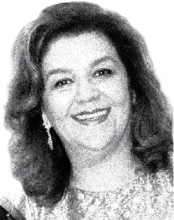You are here
Not playing fair
Sep 30,2017 - Last updated at Sep 30,2017
A couple of years ago, when I lived in England, I used to work for a well-known Arabic daily as a political editor. One of the pages I looked after had a section for rising Arab political opinion writers. Occasionally, one of those writers would prove so talented that the newspaper would ask them to write for the opinion page of the newspaper.
On a weekly basis, and without much fanfare, an e-mail would arrive from Dima Tahboub delivering her opinion piece for publication. It was always well written, had her argument articulated with depth and, in my opinion at the time, was worthy of being encouraged to seek a place on the opinion page of the paper.
She declined the idea. She was already committed to the Islamic Action Front’s (IAF) daily Al Sabeel, working at the university added to her duties as a single parent — I found out by that time she was the widow of my former colleague at The Jordan Times who died in Baghdad while on assignment for Al Jazeera — and therefore was not able to take on the extra work load.
A couple of years later, she ran as the IAF’s candidate for the Third District of Amman and, as we all know, won her seat in a cloud of controversy fuelled by her election campaign declarations against the lifestyle of those she considered liberals and demands for stricter controls over women to contain them within her — and the movement’s — interpretations of Islamic rulings.
Now I understand that her decision not to engage with a more liberal newspaper — although that paper had regional and international appeal — was more about positioning herself politically and ideologically than a professional decision.
I want to look at the campaign by and against Tahboub last week from a slightly different emphasis, focusing less on the details and more on the political meaning of what is taking place.
She has been consistently controversial since her election, and in many ways, I believe that was the intention of the Islamic movement when it decided to put its political weight behind an educated, well-spoken and tragically appealing woman in the Third District of Amman.
Where she is now is at the epicentre of the divide between affluent Islamists and the equally powerful seculars of Amman West.
She symbolises the Islamised and conservative narrative within that politically significant district where the seculars are the most vocal, most affluent and empowered, and therefore among them the IAF has placed its foes.
This scene carries much appeal and favour with the movement’s supporters who follow the debates on social media and very publicly see the IAF — through their elected representative Tahboub — fighting for their corner and upholding their value system and moral agenda.
With that strategy, she draws us into the public relations trap over and over again, as a public relations stunt serving the political party that placed her there.
And in that role, she has come to symbolise all that we fear from an influential political movement that appears to be only focused on rejecting and pillaging our lifestyle as a political platform and ploy to gain supporters and incite division.
Last week’s debacle with Tahboub, therefore, is not new and the outcome will be similar to others before it: another notch up on the popularity scale among the supporters of the Islamist movement.
Add to that the extra credit she received after she attracted the attention of a few more “sympathisers” among the credible democrats and law abiders, who rejected “personal” attacks against her and crossed the divide between Islamists and seculars to come to her aid.
We can safely say: we have been played.
So what did we learn from this little — yet quite significant — incident.
To me, it shows that we are still far short of being able to claim that we have developed a mature and politically savvy narrative and strategy by which to counter, prevent or at least play on equal footing with the IAF and its many manifestations in the political system in Jordan.
The Tahboub incident also highlights the fact that political dialogue and the priorities addressed within that dialogue continue to reflect the frivolity, inadequacy and meagreness of our “political readiness” strategy — if one can call it that — especially considering the scale of the challenges we face as a country.
These two lessons of course feed directly into the preventing/countering radicalisation conversation and our national approach on that level, but today’s column is not the space to discuss that.
Finally, by natural deduction, this whole episode and many more like it playing themselves out across the country showcase the damaging impact of the government’s continued policies to scuttle democracy by denying Jordanians the freedom to safely — safely being the operative word here — organise and participate in activities and advocacy efforts on the issues that they identify as livelihood, socio-economic or political priorities.
We need the government to provide a safe and level political playing field in order to give democracy and therefore political maturity a fighting chance.













